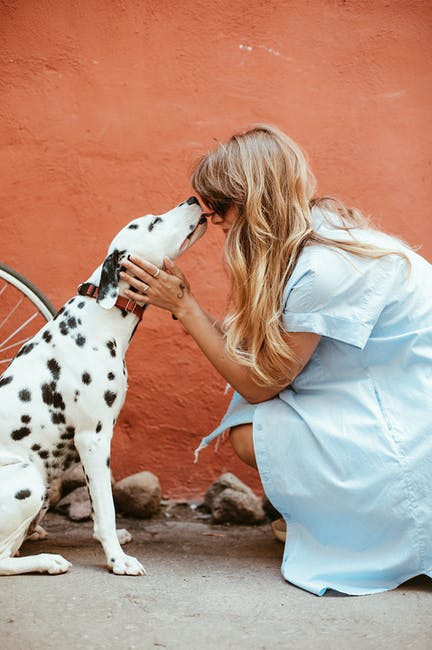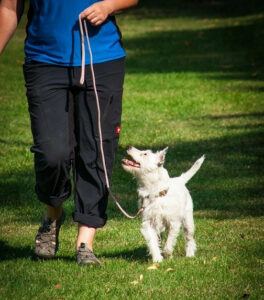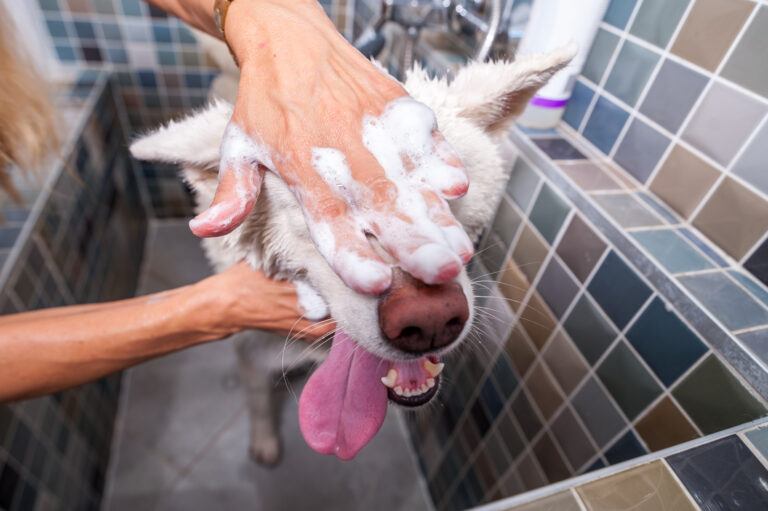Why do Dogs End Up in Shelters? Top 10 Reasons
LifeWithMyDogs is supported by our audience. When you purchase through one of our links, we may earn a small affiliate commission. As an Amazon Associate I earn from qualifying purchases. Your cost is not affected.
**********
Why Do Dogs End up in Shelters?
Experts and dog lovers often ask the question, “Why do dogs end up in shelters?” What causes a dog, once adored, to find itself in such a major life change? In this article, we will answer the question as to why do dogs end up in shelters.
It seems in most areas of the world, animal shelters continue to fill with dogs that need good homes. Just how did so many arrive? What causes an animal to end up in a shelter facility?
Committed pet lovers fail to see how anyone could simply give up their buddy. When a canine winds up in a pet shelter or rescue haven, the dog is not at fault. Most behavior issues, for example, trace back to how their previous overseers dealt with them. Often, this results from ignorance, rather than true ill-intent.
Every year, numerous animals end up in animal shelters in the US. Why do dogs end up in shelters? What helps prevent dog surrenders?
The Public Board on Pet Populace Study and Strategy (NCPPSP) analysts went into 12 chosen shelters in the US to find out. The AAHA (American Animal Hospital Association) distributed their discoveries for the main 10 reasons individuals state that they were giving up a dog. Remember that this is just founded on those animals that were given up by their owner. Numerous dogs that end up at the sanctuary were picked up by animal control or found by an outsider. Those reasons were not included due to lack of information.
Statistics Show the Importance
Why care about why dogs end up in shelters? The numbers shock most people!
- Approximately 3.3 million dogs end up in shelters each year. Thankfully, the pandemic created a positive impact on the number of shelter dogs adopted, so experts expect to see slightly lower numbers in the future.
- Each year, shelters euthanized approximately 670,000 dogs, many of which are healthy and adaptable. Again, this number is declining, in part due to the pandemic adoptions. Another positive factor seen is that microchipping enables more lost pets to be returned home.
These estimates are based in part on Shelter Animals Count data and other known and estimated sources, 2015-2018.

Here are the main ten reasons why dogs end up in shelters:
Absence of preparation:

Many people get a dog without realizing how much preparation they require. Dog don’t come prepared. They need persistent people who are able and willing to put in the hours setting rules, limits, and constraints. This requires investing energy to lovingly train them to be good family members.
Indeed, that cute fluffy puppy isn’t born housebroken. They need the training to go outside. Many people neglect to consider training. This lack of understanding frequently leads to social issues. Shelters often contain a majority of dogs that need house training, manners, socialization, and basic training. Understanding dog ownership and preparing ahead of time offers the best chance for keeping your dog.
The solution? Plan ahead. If you already have a new pet, take some time to learn about his needs. Talk with your vet and other dog professionals. It’s best to be proactive. Know what steps to take.
Lifestyle changes:
Individuals losing their job, marital separation, having a baby, or experiencing challenges with their health list these common reasons that canines end up in shelters. An individual may get overpowered by a dog when they have an infant. They might feel unable to take care of them when they, themselves feel unfortunate. Stress and anxiety from major life change often cause more changes, including pet ownership.
The Solution? Again, planning helps. Most dogs do well as family members, even when the makeup of the family changes. If properly trained, they accept new family members or changes in the family structure. And at stressful times, such as a job loss or health issue, your dog might actually be just what you need to relieve that stress.
Moving:
At times individuals move and think they can’t take their canines with them. Some apartments don’t permit canines. They might be moving in with a roommate who is allergic to dogs or just doesn’t like them. And sometimes people choose to move into another house and just don’t have any desire to include their dog.
The Solution? If you consider your dog as a family member, this won’t even apply. Just as you wouldn’t choose to move somewhere without one of your kids, you won’t choose a place that will not allow dogs. If the move is absolutely necessary, such as when a service member is called back into active duty, consider finding a friend or relative who can foster or even adopt your friend.
Insufficient time for the dog:
Our lives keep us busy. Having a dog requires a time commitment. One of the principal reasons that dogs end up in sanctuaries is that their families believe they are too busy. They prioritize other things over the dog. Often, kids who pushed their folks to get them a dog by promising to deal with it become interested in different things. When the dog is no longer a priority, he may be seen as “in the way.” If no one in the family takes time with the family dog, he may find himself surrendered to the shelter.
The Solution? A dog is a long-term commitment. When you choose to bring a pup or dog into your family, consider the many years he may live. Well-cared-for pets may live well into their mid to late teens. Even a shorter life expectancy breed may live a decade. Consider the commitment before adding a dog to your family. It’s like bringing a baby into your fold, but one that will not become an independent adult.
Cost of dog ownership:
Between vet charges, grooming, boarding, purchasing food, toys, and prepping, pets can be costly. Numerous individuals think little of the cost that maintaining a canine includes, particularly if there are uncommon requirements or medical problems included.
The Solution? Plan ahead. Most charges vary on the breed type and size. For instance, maintaining a standard-sized poodle requires learning to groom or paying a professional every 4-6 weeks. That cute floppy-eared basset eats more than the small cavalier spaniel, although both need regular basic grooming to keep those ears clean and healthy.
Also, consider either setting aside a budget for medical and surprise costs, just as you would for family emergencies. In fact, you might look into a pet medical insurance policy.
Medical problems:
Old dogs and canines with wounds and other health-related issues require more money, time, tolerance, and consideration than healthy dogs. A few people decide to dispose of the canine rather than caring for them through sickness or illness. It’s hard to imagine someone taking their pet dog to a shelter because it is sick. But it happens.
The Solution? Remember that your dog depends on you. Most dog lovers consider their pets as part of the family. As such, they would not give up a sick dog any more than they would a child who is ill. Planning ahead for medical issues helps (see the suggestions under costs of ownership) In the event that you are just not able to pay for medical costs, some rescues will help with the costs or take in the dog.
Biting, Aggression:
Dogs are regularly relinquished to shelters when they become aggressive or have nipped. If a canine (dog) shows any aggression, it should be managed right away. Biting can be avoided if a canine (dog) is appropriately trained and socialized. With training, you can manage most behavior issues.
The Solution? First and foremost, training. And not just the dog. Family members need to learn to properly manage the dog, too. Often, when a child has been bitten, it’s not an aggressive dog, but rather a child who has unintentionally hurt the dog. A good trainer can help train both the family members and the dog.
If it’s decided that the dog is just not a good fit for the family due to aggression, your trainer can help find a suitable rescue to retrain and rehome the dog.
NOTE: Some behavior issues are actually health-related. Please consult your vet before making a firm decision.
An Excessive Number of Animals in the Home:
Pets are charming and bring much happiness to our home. But some people choose to bring more into the home than they can truly manage. Costs of pet ownership increase with each pet added. Sometimes the pets don’t get along well with each other. At some point, the owner or perhaps the neighbors say that the problem is too many pets.
The Solution? Of course, planning ahead and knowing when you have as many pets as you can reasonably care for is the best solution. However, if you find yourself already at that point, it might be necessary to find good, responsible, loving homes for some of your pets. Failing that, contact a rescue for help.
Allergies/Hypersensitivities inside the family:
If somebody in the family builds up a sensitivity or allergy to a dog, it might end up in a shelter. Before bringing a new pet into your home, check for possible allergies.
The Solution? Even a family member is allergic to dogs, you have options. Some breeds cause fewer issues, including the poodles and some poodle crosses. Frequent grooming also helps. Your family doctor and your vet also have ways of managing pet allergies.
Wandering dogs and pet safeguards:
When someone finds a lost dog, they often take them to a shelter in hopes their family finds them. Owners then have a set amount of time before the dog is put up for adoption or, in too many cases, euthanized for lack of space.
The Solution? This is a multi-part solution. Experts strongly recommend you have your dog microchipped. Vets, shelters, and other professionals have chip readers that enable them to identify the dog’s owner and return them safely.
In addition, pets should be kept safe inside a fenced yard or on a leash. Running free, they are quite apt to get lost. Even worse, many end up killed by cars or even other animals. When your dog is not inside your home, he needs to be safely contained.
Why do Dogs End Up in Shelters? Top 10 Reasons
The main reasons we see when dogs come to rescue or surrender to shelters involve training. We often hear stories of how they can’t keep the dog. He jumps on people. She won’t stay off the furniture. No one can handle him.
Even when the reason given involves other aspects, much comes back to training and also planning for including the dog. You don’t need to train for performance sports like agility, although you and your dog might enjoy that, too. But you should teach your dog basic manners from the first day he comes home. Just as you want your child to learn proper behavior, so should your dog. Train him to be part of the family and he will become one.
Dog training and behavior expert, Cesar Millan, urges potential canine adopters to painstakingly choose before doing so whether to bring a canine home. Do your examination and factor in whether you’ll have the option to manage the cost of the canine (dog), invest the essential measure of energy with them, and meet their psychological and actual requirements before consenting to get one. You should ensure no one in the family is hypersensitive before you bring it home. Also, be mindful and get your new pet neutered unless you expect to show him in AKC-type shows.
Dogs are charming and are frequently bought or received without really thinking or giving a lot of thought to what is included. The individuals who get canines without acknowledging what they are often the first to abandon them.
Think about Different Options in Contrast to Giving up your Canine to a Shelter
If you have a canine and experience a way of life change, make an honest effort to work through it without leaving your canine at a shelter. You might consider asking a friend to help exercise your dog while you work. Hire a dog walker, if need be.
If you move and can’t take the canine with you or can’t bear the cost of the expenses any longer, search out dependable new owners for your pet. Moreover, if you build up an allergy, try washing the canine in hypoallergenic shampoos to mitigate your condition. In addition, if you locate a lost dog wandering, try to find the owner. Your local vet will check for a microchip and can advise on the next steps to find the owner.
Here’s a breakdown of the top reasons canines end up in shelters:
- Proprietors are moving (7%)
- The property manager doesn’t permit pets (6%)
- Care expenses become excessively high (5%)
- Family adopts too many animals in the family unit (4%)
- Owners have individual issues (4%)
- The home and family lack ability (4%)
- Owners need more time (4%)
- Canine becomes sick (4%)
- Also, Canine has been biting (3%)
- No homes found for litter mates (3%)
Why do dogs end up in shelters? Working as a trainer and helping rescue for most of my life, the main reasons I found involve TRAINING. I strongly recommend basic training for all dogs. And also, teach family members how to properly care for and maintain their beloved dogs.
Plan, Prepare, Train!
And if you need help, find a trusted expert to assist you. Your family and your dog will benefit!
Conclusion:
There are a lot of shelter dogs that are waiting for their home. A family that could love them even more and makes them feel special to at least heal the pain they felt from abuse and abandonment. I offered the solutions above so don’t be afraid to try those and let me know what happened.
Read More:
10 Training Tips for Your New Dog(pedigree.com)

















Dogs are some of the most loyal animals that you can find and it is true how many shelters have taken dogs into their care. I have also seen on television where shelters advertise asking persons to adopt a pet. Yes,there are many reasons that dods end up in a shelter as you have listed but the good part is that these shelters are doing all that they can to keep them safe and happy until they an fins a good home. Thanks so much for sharing.
I agree Norman, dogs are incredibly loyal, even more so than some people.
There is so much to be learned about dogs and for me I have taken time to read as much articles that can help me understand a dog better so when I’m ready to adopt one I’ll fully understand 95% of their actions/behaviours. For me I have well understood all of these reasons as to why they end up in shelters and I have come to understand that these animals needs care a lot
I’m glad you are learning before getting a dog. You might even consider fostering a dog when you are ready, just to see what it entails.
Your article is informative and reasonable that the owners must have responsible and caring for their pets.
My dog stayed with us for more than 15 years and passed away in September last year on the operating table. Two weeks before he passed away, he is so weak and no appetite to eat. The worse is our city is locked down, cannot immediately send him for treatment. I have to spoon-feed him little by little; sometimes, it takes me more than an hour. Lucky I have retired and not much concern about my website progress. The meat has to be chopped tiny to cook for him.
On 26th September, the city locked-up released, we have the chance to send him to the dog clinic. Less than ten minutes in the clinic room, the doctor came out said my dog is beyond treatment and needs our approval to let him go. I do not reply to the doctor, but I want to see him. Enter the room, the dog was on the operation table, stayed quietly without any movement. He looks beautiful and calm. My wife and I stay long with the dog until my wife’s friend comes to the clinic. He will take the dog body away after confirmed by the doctor he is dead. I hold my tears, but my wife cannot. We are asking to leave after the dog has died. Sad for a whole week without my dog.
Your content 1.2 and 1.3 have the same title. But 1.3 content is not relevant to the title. You can consider changing the 1.3 titles, making them relevant to your content. In fact, your content is well written with the solution given to readers. Owners who are desperately caused by pandemic may be hard to accept your solution given to them. Many countries face the same issues; pets are dumping by the owners, even Singaporean who are so fortunate to take care of by the government.
Pets are the culprits in this pandemic period. I have two cats now to fill up my empty house.
I am so sorry for your loss. Our pets weave themselves into our hearts quickly and 15 years builds that net even tighter. Bless you for caring so much for your fur friend. He was quite fortunate to have you as his family and I’m sure your family was equally blessed.
Thanks for the comments. I will check into the parts you mentioned.
It is a shame when you read the statistics about how many dogs end up in the shelters each year and how many are euthanized each year. But what is actually sadder is that most of the reasons you listed in the article can be avoided if the people who are thinking about buying a dog or any animal do their homework before they commit. Thank you for this article, it was a great eye-opener to me, and I will definitely direct anybody to this article to read first before considering buying a dog.
Yes, you are correct, John. When working with rescue, that was one of the first things I noted. With some training for the dogs AND for their families, most could have been kept. We often had some expensive purebreds, as well as mixed breeds, come in to rescue and most were very good dogs who just needed their families to have planned better first.
Hello there!
There is so much to be learned about dogs and for me I have taken time to read as much articles that can help me understand a dog better so when I’m ready to adopt one I’ll fully understand 95% of their actions/behaviours. For me I have well understood all of these reasons as to why they end up in shelters and I have come to understand that these animals needs care a lot.
Yes, it’s true that they require care, much like a child in many ways. I think if we consider them family members, that comes into a clearer view.
Hello there! Dogs are amazing creatures with feelings just like us. It’s true and sad how many end up in animal shelters because of how much money and time commitment it takes to care for one. The 10 reasons for how they end up are almost inevitable but regardless, we should do what we can to help a man’s best friend. Thank you for all the works you do in training and rescuing these canines.
They do require care and a true commitment, not unlike raising a child. It’s important to consider that when adding to our family.